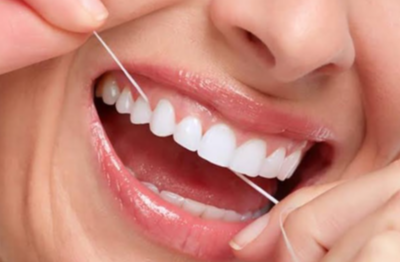A Comprehensive Guide to Maintaining Strong Teeth and Gums

A beautiful smile is more than just a confidence booster—it’s a reflection of your overall health. Maintaining strong teeth and healthy gums impacts everything from your ability to chew tasty meals to your body’s resistance to infections and disease. But how do you truly care for your oral health beyond just brushing your teeth? This guide takes you through everything you need to know to keep your teeth and gums strong, healthy, and gleaming for years to come.
Understanding Tooth Decay and Gum Disease
Healthy oral care starts with understanding the challenges your teeth and gums face. Two of the most common oral health issues are tooth decay and gum disease.
What is Tooth Decay?
Tooth decay occurs when harmful bacteria in your mouth produce acids that erode your tooth enamel, leading to cavities. High sugar intake, poor brushing habits, and lack of fluoride can speed up this process.
What is Gum Disease?
Gum disease, also known as periodontal disease, is an inflammation of the gums caused by plaque buildup. If left untreated, it can lead to gum recession, bleeding, and even tooth loss. Severe cases may also increase your risk of conditions like diabetes and heart disease.
By recognizing the signs early, such as sensitivity, pain, or bleeding while brushing, you can prevent these issues from worsening.
Read more: The Foundation of Stability: Exploring the Role of Feet in Balance
Effective Brushing and Flossing Techniques
When it comes to maintaining strong teeth and gums, brushing and flossing are your best friends. But doing them wrong could minimize their effectiveness.
Brushing Tips for Maximum Impact
- Use the right brush: Opt for a soft-bristled toothbrush that won’t wear down enamel or irritate your gums.
- Brush for two minutes: Focus on every surface of your teeth—outer, inner, and chewing surfaces.
- Technique matters: Use gentle, circular motions to remove plaque effectively without damaging your gums.
- Don’t forget your tongue: Bacteria can accumulate on your tongue, so give it a good scrub too.
The Importance of Daily Flossing
Flossing reaches areas your toothbrush misses, like the space between teeth. For best results:
- Use about 18 inches of floss, wrapping most of it around your middle fingers.
- Gently slide the floss between your teeth and curve it into a C-shape against each tooth.
- Repeat for every gap without snapping the floss into your gums.
By brushing twice daily and flossing once, you’re creating a foundation for long-lasting oral health.
The Role of Diet in Oral Health
What you eat has a direct impact on the strength of your teeth and the health of your gums. A poor diet rich in sugar and acidic foods can lead to issues like cavities and gum inflammation.
Foods that Promote Strong Teeth
- Dairy products like milk, cheese, and yogurt are rich in calcium and vitamin D, essential for strengthening tooth enamel.
- Fruits and vegetables such as apples, carrots, and celery help clean your teeth naturally while stimulating saliva production to neutralize acids.
- Nuts and seeds contain vital minerals like magnesium and zinc that protect against tooth decay.
What to Avoid
- Limit sugary snacks and beverages (like soda) that feed cavity-causing bacteria.
- Steer clear of acidic foods, including citrus fruits, as these can erode enamel over time.
Switching to a balanced diet not only benefits your oral health but also supports your overall well-being.
Regular Dental Check-ups and Professional Cleaning
Many oral health concerns can’t be spotted at home. Regular visits to the dentist are non-negotiable for catching problems early and maintaining healthy teeth and gums.
Why Check-Ups Matter
Dentists can detect issues like cavities, gum disease, and even oral cancers in their early stages when they’re easiest to treat. They also monitor your teeth for signs of grinding, incorrect alignment, or other structural problems.
Professional Cleanings for a Deeper Clean
Even the most dedicated brushing and flossing routine leaves behind some plaque. Professional cleanings remove tartar and hard-to-reach plaque, helping prevent more serious oral health problems. Most dentists recommend a cleaning every six months.
Oral Care Treatments
If you’ve suffered from advanced gum disease or tooth loss, periodontics might be the solution. Periodontists, such as those in Oregon City, specialize in treatments like dental implants to restore missing teeth and gum grafting to prevent recession to restore missing teeth. Dental implants not only improve the appearance of your smile but also maintain the structure of your jawbone, which can deteriorate after tooth loss.
Conclusion
Now that you have a better understanding of the different types of oral care treatments available, you can make informed decisions about your dental health. Whether you need basic preventive care or advanced treatments, there is a dentist out there who can help you achieve a healthy and beautiful smile.




